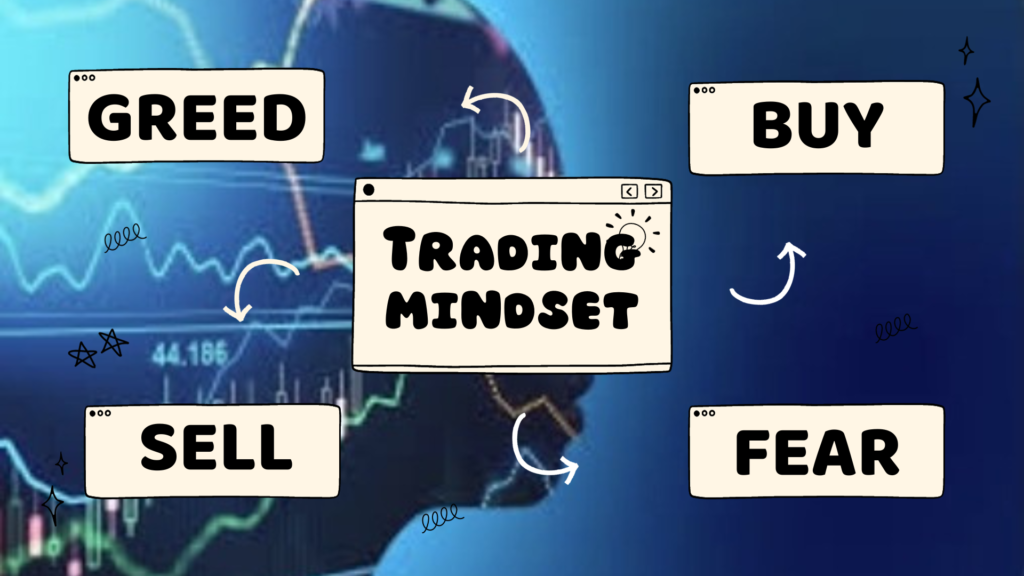You can enter the club of consistently profitable day traders only if you address the psychological challenges faced in day trading. These challenges become more provoked in day trading due to enhanced market volatility which invites emotional involvement. The play of fear and hope further complicates intraday trading. This article comprehensively describes the key pitfalls in the trading psychology of day traders.
Contents
- 1 8 Emotional Pitfalls in Day Trading:
- 1.1 1. Impulsive Decision Making due to Volatility
- 1.2 2. Greed or Urge for Loss Recovery Leads to Overtrading
- 1.3 3. Large Leveraged Position Magnifies Emotional Involvement
- 1.4 4. Intraday News Trading can Transform into Emotional Trading
- 1.5 5. Psychology of Stop-loss in Day Trading:
- 1.6 6. Biasing about Market Movement after Closely Monitoring Every Price Movement
- 1.7 7. Fatigue of Screen Erodes Decision-Making Capacity
- 1.8 8. Fear Of Losing A Profitable Trade Can Lead To Reducing Target Price
- 2 The Bottom Line:
8 Emotional Pitfalls in Day Trading:
1. Impulsive Decision Making due to Volatility
A beginner can make impulsive decisions during day trading. When the market goes against expectations, two types of emotions arise in a beginner; fight the market by increasing position or flight by cutting off the trade.
Many times, the trader finds some clue against his/her market analysis and goes for a cut and reverse option. This act further deteriorates your thinking about the market as well as your trading habits.
All of this happens due to intraday market volatility. You can avoid this impulsive decision-making if you incorporate market volatility into your trading mindset.
2. Greed or Urge for Loss Recovery Leads to Overtrading
Overtrading is one of the biggest sins of day trading psychology to which majority of the beginner day traders fall in. To get rich quickly or recover the losses, a day trader is involved in an illogical number of intraday trades. This overtrading leads to many irrational and sloppy trades and further aggravates the portfolio of a day trader.
3. Large Leveraged Position Magnifies Emotional Involvement
After measuring the intraday market volatility, some day traders are drawn to magnifying profits through enhanced leverage. Anyhow, this larger leverage increases the risk of liquidation and hence greater involvement of emotions while trading. So a day trader’s ability of rational decision making is compromised.
4. Intraday News Trading can Transform into Emotional Trading
News trading, a widely employed strategy in intraday trading, can transform a trader into an emotional trader. You wait for a news release, which, after releasing instills two types of sentiment; excitement and depression depending on whether the news goes as per expectations or against the expectations. In both ways, it will boost your emotions.
Repeated responses to news breaks in intraday trading can make an individual emotional trader.
5. Psychology of Stop-loss in Day Trading:
i– More Stoploss hits can lead to “Skipping Stop Loss”; Fear & Hope Play
Skipping stop loss is a pitfall into which almost all new traders fall. Fearing loss in case the market goes against their trade, the beginners hope that it will recover according to their expectations. So they go for skipping stop loss which greatly hurts the portfolio.
ii– Downward revising; hope-bias
Further, many beginner traders revise stop loss when the market moves near to their stop loss. They do it in fear of losing capital or in the hope that the market will recover as per their expectations.
iii– Bigger Tp; greed
Moreover, greed for more profit induces some day traders to set bigger profit targets which are unrealistic for day trading. Consequently, the market doesn’t hit the target and the traders lose a profitable trade
6. Biasing about Market Movement after Closely Monitoring Every Price Movement
During market analysis for day trading, a trader can fall prey to anchoring bias. After substantiating market trends according to the reasons or logic, the trader makes a belief about market behavior i.e. bullish or bearish, etc. This belief can hinder a day trader from timely spotting and accommodating new developments in intraday price movement.
7. Fatigue of Screen Erodes Decision-Making Capacity
Continuous watching of the boring price movements of equity markets generates fatigue in day trading. The fatigue is particularly dangerous in day trading where a trader has to analyze the market and execute trades based on the analysis. This fatigue can impair the mental capacity of a trader. A day trader may find itself less efficient in decisions after certain hours of market participation.
8. Fear Of Losing A Profitable Trade Can Lead To Reducing Target Price
Intraday market volatility induces fear of loss of profit in some beginner day traders. They can go for reducing Take Profit targets which makes the risk factor irrational.
The Bottom Line:
Day trading is a risky venture and poses obscure challenges for a trading mindset. Intraday market volatility and news trading habits can lead you to make emotional decisions rather than rational trading. Moreover, a beginner day trader may slip into ‘hope & fear’ making illogical choices like stop-loss aversion or revision.
To make the right trading choices during day trading, you are required to identify and address the challenges of trading psychology. So developing a robust trading mindset is not a choice, it is the only choice for making day trading a successful venture.

